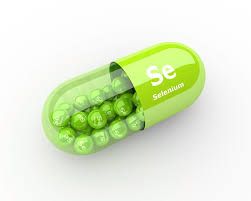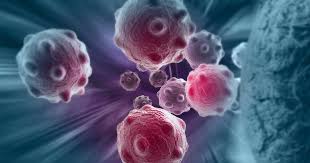Prostatic Diseases and Selenium
Date:2020-02-06 click:0
According to statistics, 90% of men aged 18-80 suffer from prostatitis. 80% of men over 40 suffer from benign prostatic hyperplasia. 90.5% of men over 80 suffer from prostatic hyperplasia. Almost 50% of men over 80 suffer from prostate cancer lesions.

In the United States, the number of visits to benign prostate hyperplasia exceeds 2 million each year, the number of resections exceeds 400,000 per year, and one-fifth of patients need to undergo surgical treatment. However, according to the survey, only about one-third of the prostatic patients will seek diagnosis and treatments. Among them, there are numerous patients with serious diseases such as uremia, renal failure, myocardial infarction, and cerebral infarction caused by delayed treatment.
In recent years, the onset age of prostatitis has also been gradually advanced, from the male who was mostly 20 to 65 years old to high school students. Prostatitis has become a male health killer. In fact, many drugs, such as Diuretic and Anti-inflammatory Pill, can achieve excellent results in the treatment of prostatitis. As long as males receive a scientific and regular treatment, there is no need to worry too much.
In the treatment of prostatitis, it was found that the selenium content in the prostatic fluid and seminal plasma of most people decreased, especially in patients with chronic prostatitis. Data show that the incidence of prostatic diseases in low selenium areas is much higher than that in high selenium areas, especially in cadmium workers.
Cadmium plays a vital role in the pathological evolution of prostate. With the increase of age and the influence of the environment, and selenium deficiency leads to endocrine disorders, which lead to prostate hyperplasia and even tumors caused by cadmium accumulation in the prostate. Selenium can inhibit the growth-promoting effect of cadmium on the human prostate epithelium, thus alleviating the disease.

Selenium is called "the longevity element" and "the king of anti-cancer" in medicine and the nutritional community at home and abroad, and it is also a necessary trace element for the human body. Adequate selenium can reduce the oxidation of healthy prostate cells and inhibit the development of various cancers.
Data also show that selenium supplementation is an essential means for the treatment of prostate diseases. Selenium is one of the essential trace elements in the human body and an essential component of glutathione peroxidase. Glutathione peroxidase (GSH-Px) has an antioxidant effect by reducing hydrogen peroxide or lipid peroxide in the cell membrane, thus improving the state of prostate and preventing prostate diseases. Selenium can regulate and inhibit the growth of cancer cells through the production of selenium-related enzymes, thus alleviating the condition.
Studies have shown that selenium plays a potential role in preventing prostate cancer from developing to an advanced stage, which also arouses great interest. Studies have confirmed that the effect of selenium supplementation on the population in low selenium areas is pronounced. It can increase the activity of selenium-containing enzymes and make the activity of glutathione peroxidase tend to peak.
According to the research data of American Cancer Center, daily selenium supplementation can reduce cancer mortality by half, reduce the total incidence of cancer by 37%, and decrease prostate cancer by 63%. The reasons are mainly related to the following mechanisms:

1. Selenium can prevent healthy prostate cells from being damaged by oxidants
Selenium is involved in the synthesis of glutathione peroxidase, which helps prevent the damage of oxidative free radicals to healthy prostate cells. A large number of studies have shown that oxidant-induced cell damage is associated with a variety of cancers. Therefore, selenium can prevent prostate cancer to some extent.
2. Selenium can inhibit the growth of prostate cancer cells
Studies have confirmed that a high concentration of selenium can damage the mitochondria of cancer cells, thereby slowing down their growth rate. Selenium can also inhibit prostate cancer by inhibiting the expression of oncogenes and other biochemical metabolic pathways.
Epidemiological studies at home and abroad have shown that the incidence of tumors is increasing in selenium-deficient areas and populations. Researchers at the University of Arizona in the United States, after 13 years of research, confirmed that the highest selenium concentration group had a 48% lower risk of prostate cancer than the lowest selenium concentration group.

Other studies have found that serum selenium levels in patients who die from prostate cancer are lower than those in surviving prostate cancer patients when other conditions such as age and race match.
It is reported that the absorption rate of selenium and vitamin E can be increased by 30 times if they are taken at the same time. Dr. Taylor, of the National Cancer Institute, said: "Recent studies have shown that selenium and vitamin E can prevent prostate cancer, but we have reached a new and promising high point, although we cannot reach a final conclusion yet."



